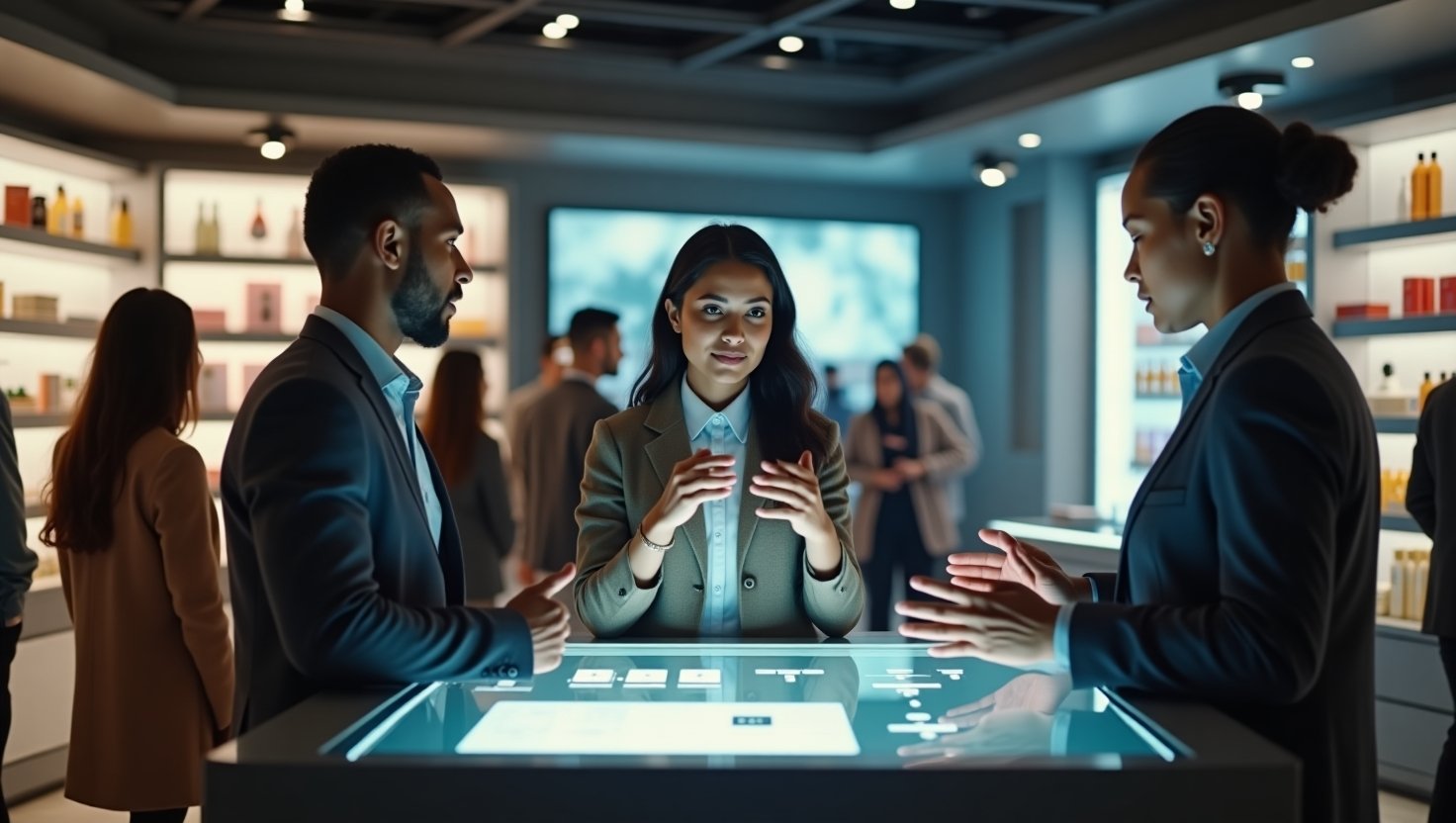The AI Revolution: Unpacking AI’s Significant Impact on Shopping
As digital landscapes evolve, the retail sector is poised for a transformation. Central to this shift is the integration of Artificial Intelligence (AI), which is reshaping how consumers shop, especially during peak periods like the holiday season. From understanding consumer behavior to streamlining retail marketing strategies, AI’s impact on shopping is profound and multifaceted.
Harnessing AI Insights for Holiday Season Strategies
During the bustling holiday shopping season, retailers keenly adopt AI insights to craft effective holiday season strategies. Consider AI as the seasoned assistant who knows customer preferences as intimately as Santa’s list. Reports from Klaviyo indicate that over half of the consumers plan to employ AI during popular shopping sprees like Black Friday and Cyber Monday source.
Generative AI tools, particularly, have gained traction, enabling users to conduct in-depth product research with ease. According to Accenture, 65% of consumers are poised to use generative AI for holiday shopping, a testimony to its growing acceptance among the tech-savvy populace source. However, experts advise a judicious approach in their implementation. Much like doctors prescribing medicine, using AI in retail must enhance and not complicate the shopping journey.
AI Facilitating a Paradigm Shift in Consumer Behavior
The advent of AI is not just about easing retail operations but fundamentally altering consumer behavior. Traditionally, consumers relied on search engines at the commencement of their shopping journey. Modern shoppers, however, delight in conversational AI tools that offer more personalized and intuitive interactions. Imagine browsing numerous aisles with an AI-powered tool that instinctively guides you to your favorite products. According to Coveo research, while only a small fraction of consumers initiate shopping with a chat-based AI, nearly one-third still resort to traditional search engines.
The shift suggests an eventual inclination toward these AI-driven tools as they promise enhanced personalization and efficiency in decision-making processes. In an environment where retailers are inundated with data, AI emerges as the beacon of clarity, offering insights that lead to more targeted product offerings and pricing strategies.
Future Implications: The AI-Driven Retail Experience
The trajectory of AI in retail marketing paints a future replete with possibilities. As seen with companies like Etsy, partnering with AI leaders like OpenAI, businesses are keen to leverage AI for customer engagement source. Such collaborations hint at a future where AI becomes integral in crafting experiences that transcend basic shopping, steering towards unique, cutting-edge consumer interaction models.
However, the integration of AI in retail should be approached with an awareness of consumer preferences and the potential pitfalls of overreliance on technology. The analogy of an AI as a co-pilot is fitting; it supports and enhances the pilot’s capabilities but must never overshadow human intervention. Retailers should strive to balance technological advancement with a personalized touch to captivate and retain the modern consumer.
In conclusion, AI’s impact on shopping is akin to a new dawn in retail innovation. By carefully navigating this frontier, businesses can effectively align with evolving consumer expectations and product experiences, ensuring that AI remains a powerful ally in transforming the retail landscape. The future beckons with the promise of smarter shopping avenues and sustainable consumer relationships nurtured through astute AI deployment.










